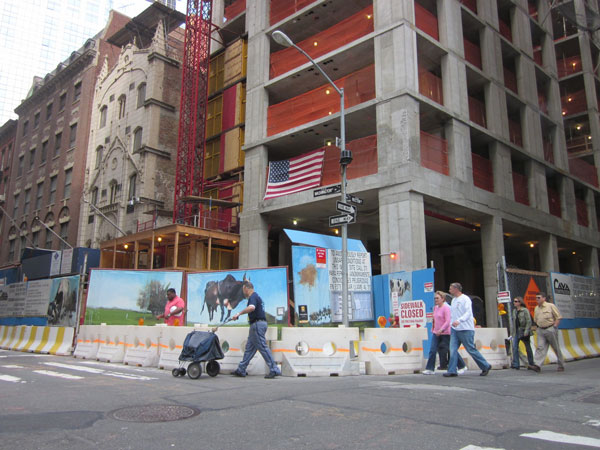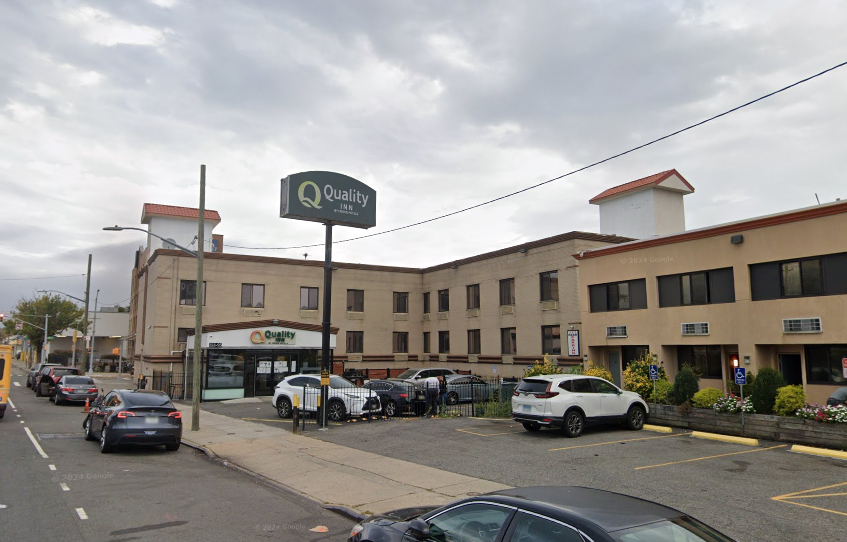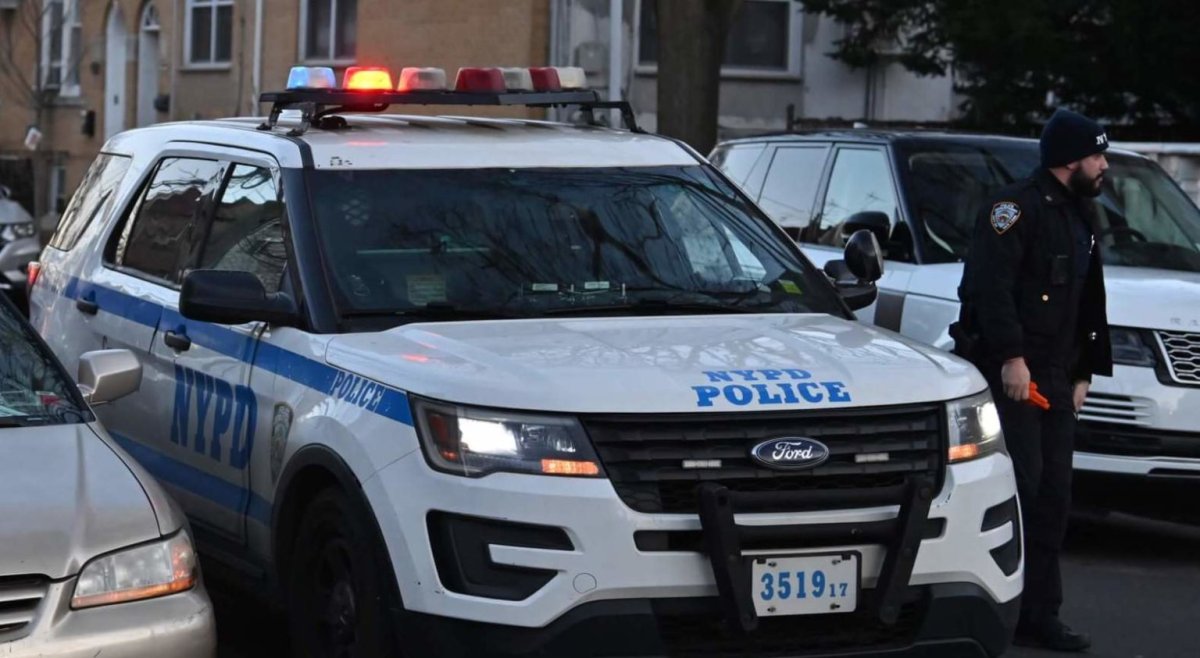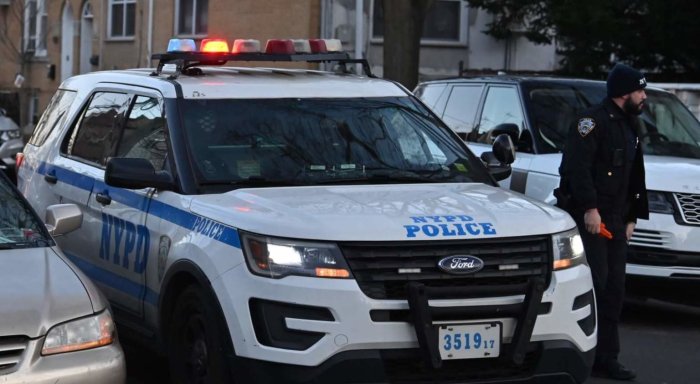 [/media-credit]
[/media-credit]
- The Downtown Holiday Inn (corner building, right) is plagued by delays and a developer in default.
BY ZACH WILLIAMS | The future of the world’s tallest Holiday Inn sprouting in Lower Manhattan remains up in the air, but the past is hard to escape for developer McSam Downtown LLC.
The Downtown Express has found that McSam currently owes the city at least $180,000 in outstanding property taxes and fines on the project site located at 99 Washington St., the future site of the hotel. While no accidents have been recorded at the site, some local residents are demanding renewed scrutiny of the developer, who is seeking to increase the planned height of the building from 43 stories to over 50 stories if the city grants the developer new permits.
An April 2 notice from the city Department of Finance (D.O.F.) stated that the company was in default of an agreement previously reached on the outstanding taxes.
While the D.O.F. has not taken any punitive action against McSam, the company recently resumed payments on its own volition, according to Pat Jones, an attorney for McSam. It has taken about seven years for the Holiday Inn project to reach its current stage, but the project will likely not meet its spring 2013 deadline for completion, the attorney noted.
As the developer seeks to finalize designs, tackle tax problems with the city and resolve the outstanding fines, McSam will also have to deal with local residents, who charge the company with neglecting the impact of the construction on the neighborhood. The residents also claim that their safety at the northeast corner of Washington and Rector Streets, which is blocked by the construction, is in jeopardy, since people have to step onto the street to pass by.
“The people who are building on that site have numerous violations all over the city that are unresolved,” said Esther Regelson, who lives near the building site. “Should we not have concerns about this? And why are they unresolved?”
Regelson added, rhetorically, “How can they continue to build on 99 Washington Street when they have tons of violations all over the city?”
Community Board 1 will examine issues surrounding the project at its May 17 Quality of Life committee meeting. Jones said that he will be in attendance.
C.B. 1 Chair Julie Menin said that the Financial District is especially sensitive about building safety given the neighborhood’s proximity to the World Trade Center, and that locals are especially concerned about the developer’s plans to increase the height of the building given the revelations of the overdue payments.
“When the developer [previously] came to the community board, this information was not known,” she said. “And now we are aware of it and we are very concerned about it, and that is why we scheduled this meeting.”
According to the city Department of Buildings (D.O.B.), properties owned by the developer have racked up dozens of building violations throughout the city. That said, Jones noted the violations count is typical for a company as large as McSam.
Asked about the residents’ concerns, he said, “I think the [D.O.B. records] say McSam is a normal developer.”
As evidence of how common building violations are in New York City, Jones referred to the D.O.B. website, which lists 40 alleged building violations at 37 Chambers St. According to the site, 49-51 Chambers St., the building that houses C.B. 1 headquarters, has five violations of its own.
In recent years, McSam, founded by hotel magnate Sam Chang, has built a name for itself in Lower Manhattan by bringing budget hotel services to a market previously known for hosting mostly upscale accommodations.
But business has not always been kind to Chang, who has twice filed for bankruptcy — most recently in 1996. He has also avoided using union labor for constructing and staffing such hotels, which has been met by opposition from labor union leaders and local residents alike.
The 2008 downturn in the local real estate market hurt the company’s balance sheet, and provoked it to sell off two-thirds of its properties and slash its staffing by 75 percent, according to Jones. The financial difficulties are also largely responsible for the company’s failure to keep up with property taxes and fines from the city.
“It is true that, since 2008, a number of properties fell behind in taxes; but at the same time, the taxes weren’t being paid [on time] — neither were the mortgages, neither were the contractors and the other vendors,” said Jones, attributing the outstanding 99 Washington St. taxes to poor oversight within the company.
Jones added, “There just wasn’t money to go around.”
However, Josh Gold, director of political and strategic affairs for the New York Hotel Trades Council, which represents 30,000 hotel workers, said the issue is not about the economy’s effect on business but about the character of McSam, who continues to evade its responsibilities to the community.
“Unpaid taxes and violations reinforce that this is a company that consistently cuts corners to the detriment of its employees, customers and city residents,” Gold said in an email.





























